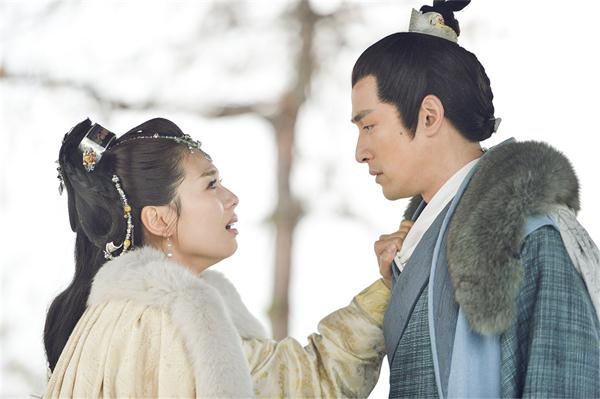'Chinese wave' needs quality productions to swell
Updated: 2015-10-22 14:05
By Xiao Lixin(China Daily)
|
||||||||
 |
|
A scene in the novel-based drama Nirvana in Fire. [Photo/IC] |
News that the Internet novel-based drama Nirvana in Fire was purchased by a Korean TV station and will be broadcast Tuesday has cheered its fans. In fact, the TV series has already entered North America last month and will be broadcast in countries and regions such as Hong Kong, Taiwan and Malaysia, which is seen as a sign of wider overseas recognition for Chinese TV dramas, and possibly even the start of a “Chinese wave” similar to Korean wave sweeping Asia during the last decade.
Most TV adaptations of online novels have quite a bad reputation among Chinese audience, not only because these productions contain stupid factual mistakes and ruin the original work due to poorly executed adaptations, but also because it is clear all the producers care about is grabbing a bigger share of the TV market with a star-studded cast, rather than presenting quality work to its audience. Take The Lost Tomb for example: The adaptation of the novel of the same name, which enjoys wide readership, was criticized for its poor quality and lame storyline and it scored badly on major film rating websites.
Under such circumstances, it is not hard to imagine why Nirvana in Fire could win the hearts of millions of viewers and has generated as many as 3.55 billion tweets on Sina Weibo alone. Regarded as the Chinese version of The Count of Monte Cristo, the drama tells the story of how the hero, Mei Changsu paves the way for his friend to come to power as the emperor and avenges the injustices to his father, fatally wronged12 years before.
Different from other TV adaptations mocked for their knockoff plots and shoddy production values, the production team of Nirvana in Fire not only invited Hai Yan, the original novel’s author to draft the screenplay, but also gave much attention to the exquisite set designs and pre-Tang Dynasty (AD618-907)costumes , as well as the editing, which has been praised by viewers and recommended by word of mouth.
In recent years, a large number of popular and quality Internet novels have gained the attention of production companies which have turned them into films and TV series. These spawn derivative products. However, most of the time, fans of the original novel are disappointed by the adaptations.
That is not to say the flood of money into the online literature world is a bad thing. At least, it has brought wider attention to this newly emerging form of literature in the past decade and provided a broader platform for it to better survive, develop and flourish. However, usually after purchasing the intellectual property of the online novels, investors have hasty produced and released their adaptations, and been obsessed with the idea of counting on actors’ fans to initiate online hype to create a false impression of huge popularity. This inevitably ends up losing the audience’s favor. This vicious circle, although quite economically alluring for investors, may eventually lead the industry astray.
Also, even forthe possible “Chinese wave”, what counts most is quality of our TV and film works, no matter whether they have modern or historical themes, although domestic costume dramas are noticeably more preferred by overseas TV stations, especially Asian broadcasters. Production companies should not only keep in step with their foreign counterparts in shooting and editing techniques, more importantly, they respect the audience and offer them quality screenplays and well-made productions, something they should have done long ago.
The author is a writer with China Daily
- Global health entering new era: WHO chief
- Brazil's planning minister steps aside after recordings revelation
- Vietnam, US adopt joint statement on advancing comprehensive partnership
- European border closures 'inhumane': UN refugee agency
- Japan's foreign minister calls A-bombings extremely regrettable
- Fukushima impact unprecedented for oceans: US expert

 Stars of Lijiang River: Elderly brothers with white beards
Stars of Lijiang River: Elderly brothers with white beards
 Wealthy Chinese children paying money to learn British manners
Wealthy Chinese children paying money to learn British manners
 Military-style wedding: Fighter jets, grooms in dashing uniforms
Military-style wedding: Fighter jets, grooms in dashing uniforms
 Striking photos around the world: May 16 - May 22
Striking photos around the world: May 16 - May 22
 Robots help elderly in nursing home in east China
Robots help elderly in nursing home in east China
 Hanging in the air: Chongqing holds rescue drill
Hanging in the air: Chongqing holds rescue drill
 2.1-ton tofu finishes in two hours in central China
2.1-ton tofu finishes in two hours in central China
 Six things you may not know about Grain Buds
Six things you may not know about Grain Buds
Most Viewed
Editor's Picks

|

|

|

|

|

|
Today's Top News
Liang avoids jail in shooting death
China's finance minister addresses ratings downgrade
Duke alumni visit Chinese Embassy
Marriott unlikely to top Anbang offer for Starwood: Observers
Chinese biopharma debuts on Nasdaq
What ends Jeb Bush's White House hopes
Investigation for Nicolas's campaign
Will US-ASEAN meeting be good for region?
US Weekly

|

|







